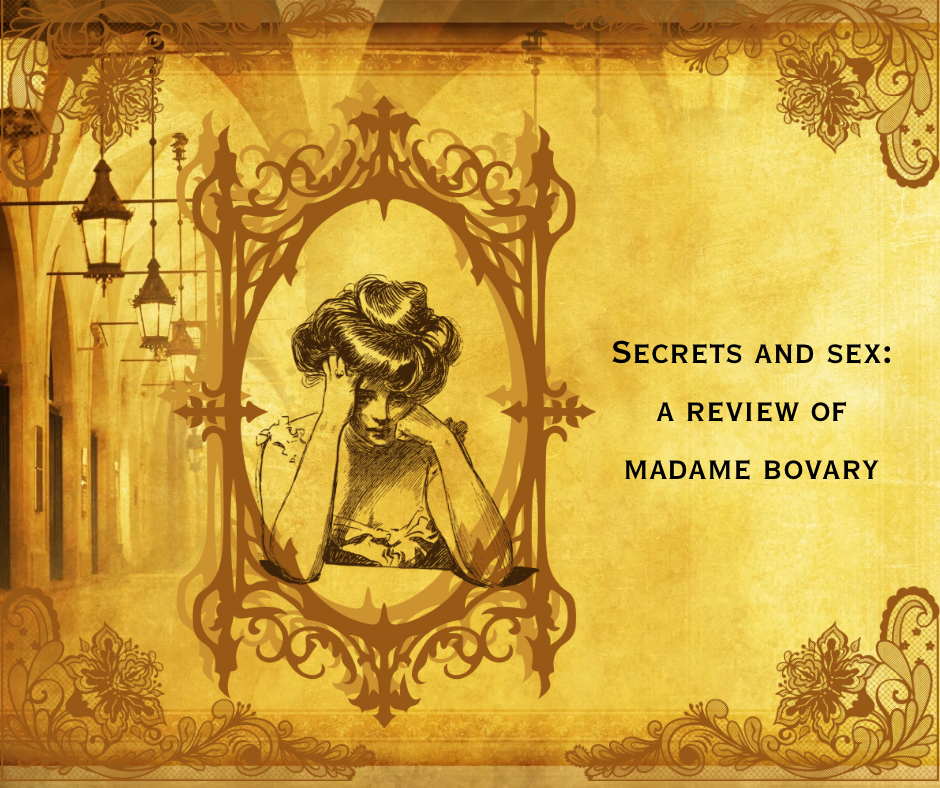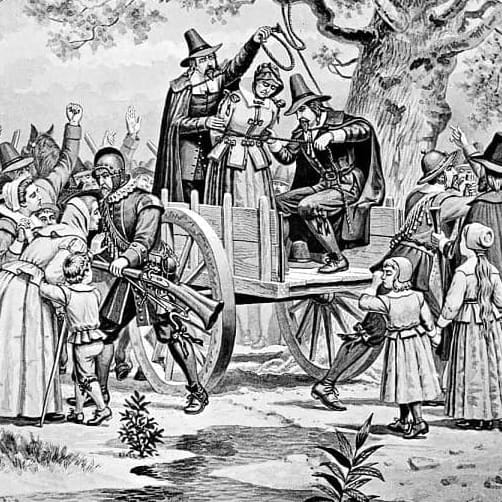Secrets and Sex – A Review of Madame Bovary

Madame Bovary is a novel set in Victorian France, written by Gustave Flaubert in 1856. The novel’s complicated characters and refusal to comfort its audience has made it – especially its protagonist Emma Bovary – a subject of scrutiny.
The novel follows Emma through her journey as a newlywed and through motherhood. She was probed as a domestic, an adulterer, a part of society, and, simply, a woman. Emma marries a doctor for love and enjoys her honeymoon, but the appeal of married life fades fast as the reality of her womanly duties sets in. As she enters her new home for the first time, she understands that she must live a modest life, never quite realising her dreams of high society. This – a dream many Victorian women would have had to squash early – becomes the root of Emma’s bitter temperament.
As she sits down for dinner, her husband, Charles, discusses his latest patient’s ailments – she starts to get annoyed.
She attends an exciting soiree in town, in a lavish home, yet must return to her sufficiently adequate abode – she starts to get restless
She consumes every book in the house, yet can never live the great lives described in the novels – she starts to look for excitement.
Emma Bovary, throughout the novel, is depicted as a horrible person because of her adulterous actions, her selfishness, her materialism, and her manipulative qualities – odious human characteristics which any reasonable person would judge as unethical and unpleasant. However, I am here to defend Emma against these prejudices.
The novel begins with Charles’s childhood and ends after Emma’s death, describing the ways in which her husband dealt with his life after her tragic ending. This idea represents the ways that Victorian women’s lives were dictated, decided, and dominated through the men in their lives. Middlemarch (George Eliot), although written by a woman, similarly reflects this idea – I highly recommend it to anyone interested in these themes. This is refreshingly contrasted in the 2014 film adaptation of Madame Bovary, starring Mia Wasikowska (of Jane Eyre fame – Mia must have some quality that resembles these frustrated Victorian women). The film starts with Emma and ends with her, properly encompassing the story of she whom the novel is named for, rather than the surrounding characters.
One such surrounding character who dominates the novel is Monsieur Lheureux, the town merchant, who slowly but surely leads the Bovary family down the path of destitution. Monsieur Lheureux (whose surname ironically means ‘happy’ in French) is seen penitent during Emma’s funeral, due to his guilt for driving Emma to her ruin. This particular detail shows the world’s natural progression, regardless of the people in it, which speaks to Flaubert’s realist literary lens. However, it is my opinion that it offers nothing to the progression of the plot, which ends with Emma’s suicide. The relevance of Lheureux’s remorse is slim when the protagonist has already been pushed off the edge. Further, this detail encourages the reader to feel sympathetic towards the male characters in the novel that did Emma wrong, and direct their discomfort towards Emma herself.
Emma receives a lot of backlash from readers for her multiple affairs, first with Leon, and then Rodolphe, and then with Leon again. As Emma becomes bored of her provincial life, she finds pleasant company with Leon and feelings are insinuated throughout the text. Leon, who has a tighter grasp on reality than Rodolphe – who carelessly trenches through life with a shallow mindset – does not attempt anything with Emma before moving towns, and they forget all about each other.
Instead, Emma embarks on a romantic, yet secret, relationship with Rodolphe, a character with strong thoughts on women and the freedom he possesses as a man – thoughts which the reader is let into, as his stream of consciousness is strategically revealed. This places the reader in another uncomfortable position of knowing Rodolphe’s dishonourable intentions towards Emma and therefore waiting for the text to turn sour.
Secrets seem to dominate this text. Although most are kept by Emma, the reason behind them should be investigated in depth before a judgement is made about her character. For example, why would she begin an affair if she is married? In the conservative Victorian era, social standards and regulations had absolute control over the lives (and, more importantly, sexuality) of women. Objectively, Emma must have felt incredibly restricted in her fruitless relationship. In the 21st century, a woman has the option of leaving a relationship and moving on, without (as much) hatred towards her actions. Emma did not have that luxury. We must understand the socio-political position women were in, and forgive Madame Bovary for having seized control over her sexuality.
Further, how could such a well-read and educated woman have racked up such a huge debt from Monsieur Lheureux? Reading closely, one can distinguish the manipulative patterns in Lheureux’s speeches to Emma, persuading her to purchase items with his assistance. Despite reader scrutiny, Emma was the true victim in this situation. Emma had nothing, not even a friend, except for Monsieur Lheureux’s occasional visits. His beautiful gifts would’ve been exciting for any culturally imprisoned housewife. Lheureux’s guilt at Emma’s funeral reflects an understanding of his manipulation and deceit, ultimately acknowledging his role in driving her to suicide.
Finally, going back to Rodolphe to ask for money to pay off her debts highlights Emma’s status as a woman of her time. She has, once again, no one to turn to settle her matters but the men in her life. She has no independence and no means or opportunity to work towards fixing her own mistakes. It is clear why Emma would use the only thing that truly belongs to her: her body. We finally see some female rage when she attempts to prostitute herself and gets rejected by Rodolphe. He has nothing to say except, ‘I don’t have the money.’
Emma risked everything to be with Rodolphe, even planning to run away together before being abandoned by him. Her anger and subsequent depression is understandable as she realises that her only tool is powerless against the men who have already disarmed her for free.
It is important to note that Gustave Flaubert was tried for indecency for this text in 1857. Madame Bovary was deemed lacking in morals and religious thought. Flaubert was given two warnings to tone down its sexual nature, which he refused. The editors of La Revue de Paris, where text was published in segments, made changes to the novel without Flaubert’s consent. By including a disclaimer that it wasn’t his intention to change anything in the novel, the authorities’ attention was caught. In the end, Flaubert was acquitted with no conviction over Madame Bovary.
Finally, Madame Bovary’s character should be inspected thoroughly before prejudices and conclusions can be made about her personality. When reading Victorian classics, or any novel in fact, readers must be attentive to the hidden details. I encourage everyone to do the same with novels containing similar odious characters, like Anna Karenina (Leo Tolstoy), Tess of the D’Urbervilles (Thomas Hardy), Wuthering Heights (Emily Brontë), or Dracula (Bram Stoker). Let’s start asking: why do authors want us to hate their female characters?




